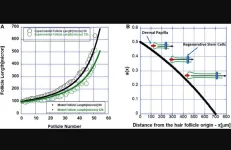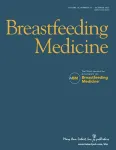(Press-News.org) A new study sheds light on the vital role of communication and expertise within organizations, revealing their impact on group performance. Researchers examined how individuals become part of communication networks and the effect of selection processes on group performance. The study found that people who communicated more during training were more likely to be chosen as a central member of the network. In addition, teams that chose their central member performed as well as and often better than teams whose central member was randomly assigned.
The study, by researchers at Carnegie Mellon University, the Frankfurt School of Finance and Management, the University of Massachusetts Dartmouth, and Clark University, is published in Frontiers in Psychology.
“The people in network positions and the processes by which they arrive at those positions play a significant role in determining team performance,” says Linda Argote, Professor of Organizational Behavior and Theory at Carnegie Mellon’s Tepper School of Business, who coauthored the study. “For centralized network positions which require occupants to transfer information to other members of the network, it is critical to have good communication skills.”
Communication networks serve as the conduits for knowledge exchange, and central members in a network are often responsible for gathering and sharing that information. Researchers drew on studies on communication networks as well as the Carnegie research perspective, which studies the ways organizations gain efficiency through learning, developing routines and structures, and exchanging knowledge.
To test whether group members who choose the occupants of network positions select themselves and others that best suit skill requirements of the position, the authors compared the performance of groups whose members received their choice of who occupied which network position to the performance of groups whose members did not. They conducted a lab study that involved nearly 125 university students. They had two experimental conditions: in one condition, members received their choice of who occupied the central position; in the other condition, members did not receive their choice.
Allowing group members to choose who occupies which network positions enabled teams to optimize their position assignments based on individuals’ skills and expertise (e.g., organization, delegation), which boosted groups’ performance. Team members were more likely to choose individuals who communicated frequently and those who appeared to have task-related expertise to occupy the central network position. Teams receiving their choice of central member performed better than teams not receiving their choice or teams in which members were randomly assigned to the position.
Among the study’s limitations, the authors note that they investigated the effects of choice as they pertained to network positions in a single network structure, not whether groups performed differently when they could choose their network structures.
“The Carnegie perspective speaks to formal and informal communication structures in organizations but not about the processes through which workers come to occupy network positions,” explains Jerry Guo, Assistant Professor of Strategy at the Frankfurt School of Finance and Management, who led the study. “We extended this perspective by showing that the process through which individuals come to occupy network positions affects the performance of networks. In this way, we contribute to an understanding of how the development of a network, not just its structure, influences performance.”
The study was funded by the Center for Organizational Learning, Innovation and Knowledge at the Tepper School of Business at Carnegie Mellon, the National Science Foundation, and the Frankfurt School of Finance and Management.
END
People who communicate more, show expertise are more likely to be seen as essential team members
2023-10-23
ELSE PRESS RELEASES FROM THIS DATE:
Apoptotic cells may drive cell death in hair follicles during regression cycle
2023-10-23
“Revealing the stem cell niche self-renewal dynamics is important not only for understanding tissue homeostasis but also for understanding the initiation of cancer [7].”
BUFFALO, NY- October 23, 2023 – A new research paper was published in Oncotarget's Volume 14 on October 19, 2023, entitled, “Apoptotic cells may drive cell death in hair follicles during their regression cycle.”
Intravital microscopy in live mice has shown that the elimination of epithelial cells during hair follicle regression involves supra-basal cell differentiation and basal cell apoptosis through synergistic action of TGF-β (transforming ...
$3.6 million NIH award funds research to treat painful diabetic neuropathy
2023-10-23
COLUMBUS, Ohio – A $3.6 million award from the National Institutes of Health will allow neurosurgical, neurology and neuroscience researchers at The Ohio State University Wexner Medical Center and College of Medicine to test a novel diagnosis and treatment combination for painful diabetic neuropathy. The approach combines spinal cord stimulation with measurement of small fiber nerve activity using a patent-pending device called Detecting Early Neuropathy (DEN).
Diabetes is a growing health concern worldwide, ...
Superdeep diamonds provide a window on supercontinent growth
2023-10-23
Washington, DC—Diamonds contain evidence of the mantle rocks that helped buoy and grow the ancient supercontinent Gondwana from below, according to new research from a team of scientists led by Suzette Timmerman—formerly of the University of Alberta and now at the University of Bern—and including Carnegie’s Steven Shirey, Michael Walter, and Andrew Steele. Their findings, published in Nature, demonstrate that superdeep diamonds can provide a window through space and time into the supercontinent growth and formation ...
American Cancer Society awards pilot funding to University of Cincinnati Cancer Center for early-stage investigators
2023-10-23
The American Cancer Society has awarded the University of Cincinnati Cancer Center an Institutional Research Grant.
Cancer Center member David Plas, PhD, is primary investigator for the grant, with members Maria Czyzyk-Krzeska, MD, PhD, and Kathryn Wikenheiser-Brokamp, MD, PhD, serving as co-principal investigators.
The American Cancer Society awards Institutional Research Grants to academic and nonprofit organizations that have a track record of outstanding cancer research and a pool of experienced researchers who can mentor junior faculty. The purpose is to support early-stage ...
Climate is increasing risk of high toxin concentrations in Northern US lakes
2023-10-23
Washington, DC— As climate change warms the Earth, higher-latitude regions will be at greater risk for toxins produced by algal blooms, according to new research led by Carnegie’s Anna Michalak, Julian Merder, and Gang Zhao. Their findings, published in Nature Water, identify water temperatures of 20 to 25 degrees Celsius (68 to 77 degrees Fahrenheit) as being at the greatest risk for developing dangerous levels of a common algae-produced toxin called microcystin.
Harmful algal blooms result when bodies of water get overloaded with nitrogen and phosphorus ...
Breastfeeding in the setting of substance use
2023-10-23
The Academy of Breastfeeding Medicine (ABM) has released new literature-based recommendations related to breastfeeding in the setting of substance use and substance use disorder (SUD) treatments. The new clinical protocol is published in the peer-reviewed journal Breastfeeding Medicine. Click here to read the article now.
Miriam Harris, MD and Elisha Wachman, MD, from Boston Medical Center, and coauthors, provide breastfeeding recommendations in the setting of non-prescribed opioid, stimulant, sedative-hypnotic, alcohol, nicotine, and cannabis use, and SUD treatments. They also offer guidance on the use of toxicology testing in breastfeeding ...
New exoplanet-informed research sets clearer bounds on the search for radio technosignatures
2023-10-23
A new study leverages the NASA Exoplanet Archive and planetary system simulations to make narrowband SETI searches more efficient.
October 23, 2023, Mountain View, CA -- In a new study published in the Astronomical Journal, researchers used the known population of exoplanets and extrapolated to the much larger, unknown population of exoplanets to set better thresholds for planetary effects on signals from ETIs (extraterrestrial intelligences). The prior recommendation for the threshold “drift rate” contribution, caused by a planet’s motion around its host star, was 200 nHz. In this work, lead ...
Navigating the future of skin health: The 14Th International Conference on Skin Ageing & Challenges 2023
2023-10-23
Lisbon, Portugal – 23 October, 2023
The International Society of Microbiota (ISM) is proud to present the 14th International Conference on Skin Ageing & Challenges 2023. This monumental event will unfold at the Altis Grand Hotel in Lisbon, Portugal, and virtually, on November 9-10, 2023.
Skin ageing, a multifaceted issue combining both basic research, mechanistic, clinical aspects and health concerns, is gaining significant attention in the scientific community.
This year’s conference promises to be a beacon of innovation, ...
Gut fungi's lasting impact on severe COVID-19 immune response
2023-10-23
Certain gut-dwelling fungi flourish in severe cases of COVID-19, amplifying the excessive inflammation that drives this disease while also causing long-lasting changes in the immune system, according to a new study led by investigators at Weill Cornell Medicine and NewYork-Presbyterian. This discovery identifies a group of patients who may benefit from specialized, but yet-to-be determined treatments.
Utilizing patient samples and preclinical models, the research team determined that the growth of fungi in the intestinal ...
Who were the first modern humans to settle in Europe?
2023-10-23
Before modern humans settled definitively in Europe, other human populations left Africa for Europe beginning approximately 60,000 years ago, albeit without settling for the long term. This was due to a major climatic crisis 40,000 years ago, combined with a super-eruption originating from the Phlegraean Fields volcanic area near current-day Naples, subsequently precipitating a decline in ancient European populations. To determine who the first modern humans to settle definitively in Europe were, a team led by CNRS scientists1 analysed the genome of two skull ...








